What is your super skill?
EU PRO Plus 2023 Calendar Art Competition
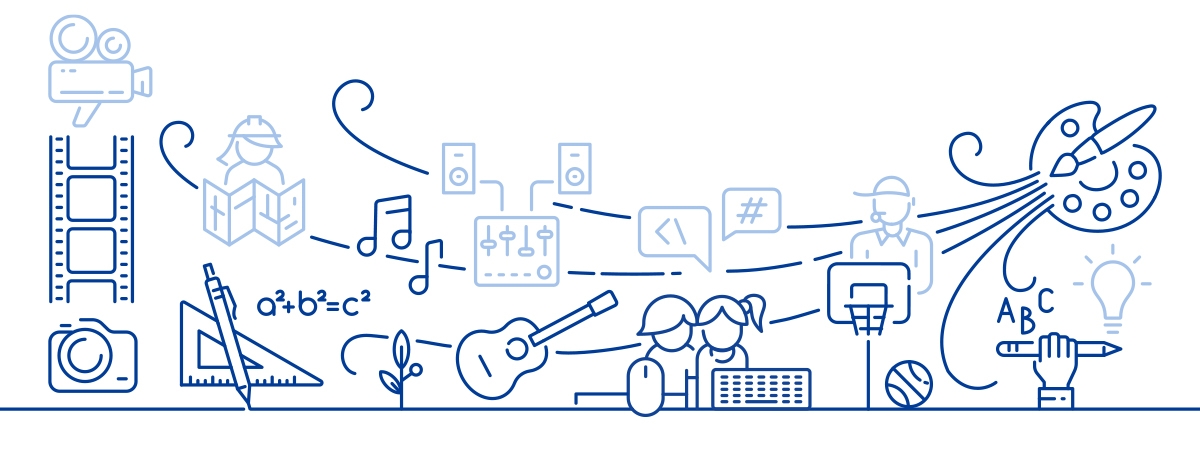
17 October 2022
Call opened
About Competition
Background
The European Union for Local Development Programme - EU PRO Plus as its predecessor Programmes – PRO 1 and 2, EU and European PROGRES and EU PRO organises an annual art competition for high school students in 99 municipalities of Šumadija, Western, Southern and Eastern Serbia. The competition intends to encourage students to learn about, consider and promote different aspects of longstanding relationships between Serbia and the European Union and explore their common goals and values.
The competition is also an opportunity to recognise, encourage and award artistic talent of socially engaged high school students, as well as schools in the Programmes area which most prominently and systematically supports creative growth of its students.
Objectives
-
To encourage the youth in the 99 cities and municipalities to become or remain socially conscious, engaged and proactive about their rights and needs;
-
To inspire high school students to take action on the issues that matter to them and actively work on developing and/or contributing to initiatives that positively impact their lives and lives of the their community as a whole;
-
To improve learning conditions in the school with the best result in the competition;
-
To encourage secondary school pupils to pursue their artistic talent;
Who is eligible?
Pupils from all secondary and grammar schools, regardless of their grade, in 99 EU PRO Plus local self-governments will be eligible to participate in the competition: https://euproplus.org.rs/gderadimo
Students that have held the first, the second or the third place in any previous year are not eligible to be re-awarded one of those three rewards. They are, however, still eligible to participate and place in any of the remaining nine places.
Propositions of EU PRO Plus 2023 Calendar Competition
Competition Theme
Theme
The European Commission (EC) announced 2023 as the European Year of Skills to focus on establishing and investing in mechanisms intended to meet the rapidly changing job market and professional education needs required for upskilling of the European workforce.
In reality, besides the long ongoing integration of automatisation and artificial intelligence in predominantly production industries, more recently the pandemic driven necessity for rapid digitalisation significantly altered the global approach to learning and doing business. These changes combined and additionally exacerbated by climate crisis response and global political turmoil had an irreversible effect on the job market needs. In response to this new reality the European Union focused on empowering people and businesses to adapt to this human-centered digital future.
In the Digital Decade Strategy the EU aims that by 2030 a minimum of 80% of Europeans achieve basic digital skills while over 20 million Europeans will be certified Information and Communications Technology (ICT) specialists. The new call under the DIGITAL Europe Programme, which will fund new Bachelor's and Master's degrees in key technology areas, addresses precisely this need.
Adaptation to this new, rapidly developing reality has to be swift and requires agility from both the educators and the learners. On one hand traditional, static and predominantly specific, theoretical education will have to, due to the fast evolving environment, be transformed into a lifelong and life-wide learning that aims to holistically develop learners. This foresees supporting learners in identifying and utlising their talents, focusing on developing relevant professional skills through vocational training and supporting them to reach self-fulfillment both in work environment and as active participants in society.
We, therefore, want to encourage young people to think about their own talents as well as their future profession, where that talent, transformed into professional skills through education, would be best used in a work environment.
Talking points for discussion with students to foster creativity
Do you have a special talent, any specific interest in subjects and topics regardless of whether they are taught in school or outside it? What and where would you like to study if you could go to any school in the world and study any subject? What is your future profession, why and how does it fit into the new, digitalized reality? What innovations will you introduce into your profession one day, what will you do differently from previous generations of professionals in that sector? How could your work in that profession positively affect your life, your community and contribute to a better Serbia in Europe? If you were the best in your future profession, what award would you win and for what? What skills do you need to make it happen? Where can these skills be acquired?
Competition Propositions
Format of Expression
The works submitted for the calendar competition must be in the A3 format (42 x 29.7 cm). The works could be Illustrations, drawings, paintings or collages.
On the back of each artwork there must be clearly written or glued print out of the following information:
-
One paragraph (approximately 30 words) explanation of what the artwork represents;
-
The full name of the pupil with mobile phone number and email address of the student
-
Year and class student is attending
-
The full name of the supervising teacher with mobile phone number and email address of the teacher
-
The name and the address of the school
Work submitted without a textual explanation will not be considered. Explanations must clearly depict the artwork.
Example of data submission of awarded work within 2022 EU PRO Plus Programme art competition "Your ideas, your future"
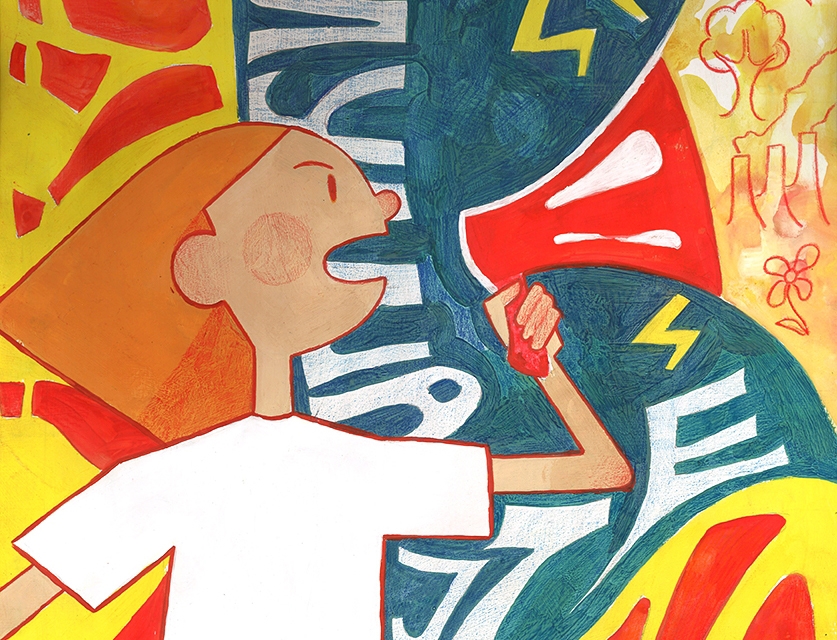
Example of the paragraph (around 30 words) that explains the work:
Engaging the youth in defining their own future through initiating the actions to solve the current issues in the community is crucial for the future of all the citizens in Niš. (this sample paragraph has 31 words)
Name, surname, contact phone and email address of the student:
Anđela Bučić, 060 000 000, email@email
Grade and year the student is attending: III2
Name, surname, contact phone and email address of the teacher:
Danijela Davidović, 060 000 000, email@email
Name and address of the school: Niš Art School, Prvomajska 6, Niš
-
Inappropriately named works or those sending this kind of messages can be disqualified;
-
It is very important to pay particular attention to avoiding stereotypes, mocking, offensive or inappropriately presenting vulnerable groups, their position in society, ways of life, cultures etc. Artworks with such content will be automatically disqualified;
-
Authors and schools must guarantee that all elements of the submitted art pieces do not represent copies of other original works;
-
All images used on the art works, must be in compliance with the existing Law on Copyright and Related Rights of the Republic of Serbia;
General Competition Rules
-
EU PRO Plus will not cover the costs of creating and submitting art works
-
Participation in the competition is free of charge and the applications can be submitted by individual pupil or as a part of the group (within school application);
-
All entries not respecting the theme or the technical/authorship requirements will be disqualified;
-
Only art pieces which have not yet been published may be submitted;
-
By participating in this competition, the authors and schools agree that EU PRO Plus and the Delegation of the European Union to the Republic of Serbia (DEU) may also use the artworks for the purpose of their promotion, publicity, news, during educational workshops as well as information campaigns and campaigns related to the topic of the competition, without the prior permission of the author;
-
Authors of the best works will be credited on EU PRO Plus 2023 calendar;
-
Previous holders of the first, the second and the third place are not eligible to be awarded one of those three rewards again. They are, however, still eligible to participate and occupy any of the remaining nine places;
Responsibilities of the Participating Schools
-
The secondary schools, which decide to participate in the calendar competition, have to organise an internal contest that will be open to all pupils and select up to five (5) best artworks to submit for the competition;
-
The relevant teachers from participating schools are also highly advised to open a conversation and engage with the students on the topic set by the competition while guiding them during creation of the artworks;
-
Only one work per pupil can be submitted for the EU PRO Plus Calendar Competition;
-
The deadline for submission of works is 20 November 2022, by 12:00.
-
The selected artworks must be delivered by post to the EU PRO Plus Belgrade office:
UNOPS/EU PRO Plus
Naznaka „Likovni konkurs”
Skrelićeva 4,
11000 Beograd
-
In addition to the competition for the best artwork of high school students, schools will also be graded and able to win awards based on the effort they put into organizing internal school competitions;
-
The internal school competition must be documented and attached in the form of a short textual description accompanied by photographs and / or videos and sent together with the artworks in order for the school to qualify for the award.
Selection Process
-
Only submitted artworks that meet all the rules of the competition will participate in the first round of the competition, after which the first 20 will be displayed on the official EU PRO Plus website and will participate in online voting;
-
Online voting will last for five days and will be open for all citizens of Serbia;
-
At the end of the voting, all online votes will be summed up, after which the winner with the highest number of likes will receive one vote of the audience, which will have a value equal to one vote of other members of the jury. The EU PRO Plus’ Selection Committee will be composed of four members at least one of which with artistic background;
-
The Selection Committee will shortlist 12 best works from all received entries;
-
The Selection Committee will, from 12 shortlisted works, announce the third best, the second best and the best work.
AWARDS
Prizes for Pupils and Teachers
The following awards will be presented for 12 best works:
-
The first prize – laptop computer
-
The second and the third prize – tablet computers
-
Nine consolation prizes – mobile phones
-
Tablets will be awarded to the teachers from the three best schools.
Prize for the Winning School
The Selection Committee will also take into consideration the commitment of the school in the organisation of the internal school competition.
One secondary school will be given a special prize for the efforts put into the organisation of the internal competition, the overall number and the quality of works submitted.
The winning school will be awarded with a laptop computer, a projector and accompanying equipment, which should contribute to the improvement of conditions for the education of pupils.
Prize Awards Ceremony
EU PRO Plus will organise an awards ceremony in accordance with the epidemiological situation in December 2022, the participants will be timely notified of the form. An exhibition of the best submitted works will be organised as part of the ceremony, and the EU PRO Plus calendar for 2023 will be presented.
The European Union for Local Development Programme - EU PRO Plus contributes to a more balanced socio-economic development in Serbia by enhancing territorial development management, supporting economic growth, and improving social infrastructure and social cohesion of 99 local self-governments in two regions: Šumadija and Western Serbia and South and Eastern Serbia. To learn more about the Programme visit www.euproplus.org.rs
Online voting for the best artworks
Online voting for the best works of art will be open until 4 December 2022 at 12 noon.
In order to participate in online voting, please register using your email address. After entering your email address and password, you will receive a registration confirmation and a login link, after which you can start voting.
After registration, you can vote for each work you like once by clicking on the heart below the work. Clicking the blue heart again cancels the vote.
When you have shared your votes, it is enough to close the voting page or leave the programme, and your votes will be automatically registered in our database.
Thank you for your time and help in selecting the best works of art that will appear on the pages of the EU PRO Plus program calendar for 2023.
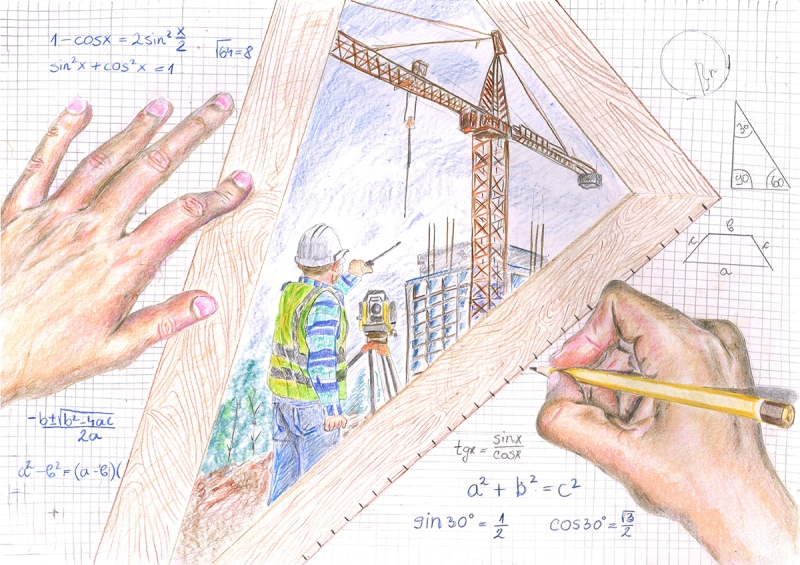
From geometry fan to architect.
My super skill is geometry. I believe that architecture is an ideal combination of order and creativity, and my wish is to become a world-renowned architect in the future.
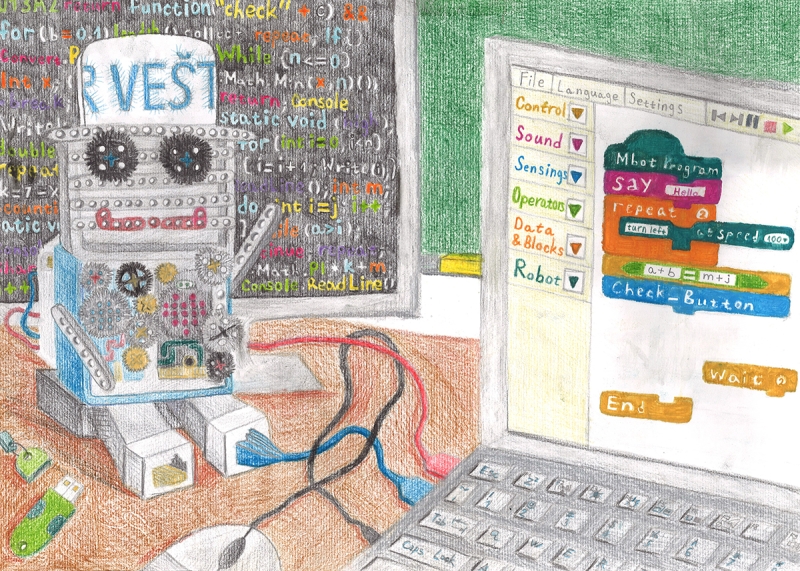
From informatics to programmer.
My superskill is computer science. My wish is to one day use my programming skills and create my own collaborators and assistants for new technology ventures.
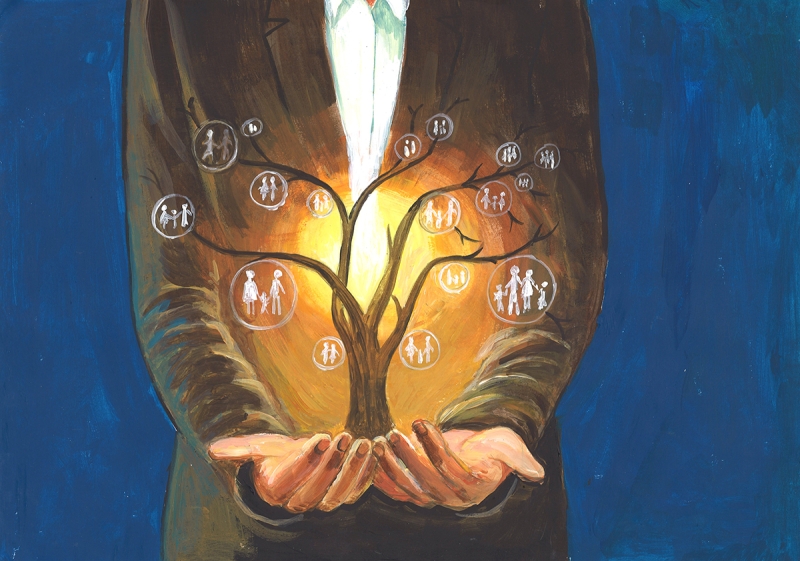
From talented mathematician to data analyst.
My super skill is statistics. This year's census and its results, especially the figures on youth immigration, indicated the socio-cultural value of my talent. It is my desire to use data analytics to contribute to pointing out problems and solutions that will make our community better.
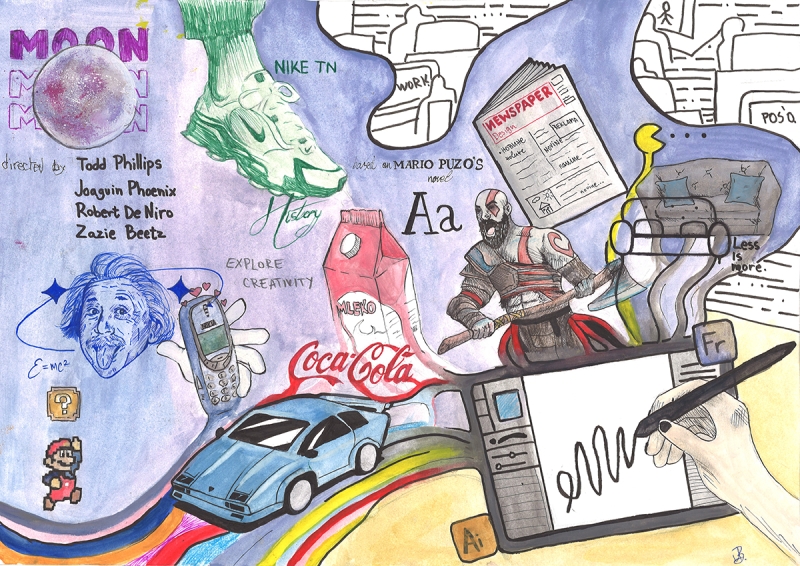
From fine artist to brand designer.
My super skill is fine art. Its widespread use in all industries from food to video games, the automotive and furniture industries, the fashion, music and film industries profoundly affects our everyday decisions. My desire is to use my super skill by sending socially useful messages through my branding business and thus have a positive impact on society.
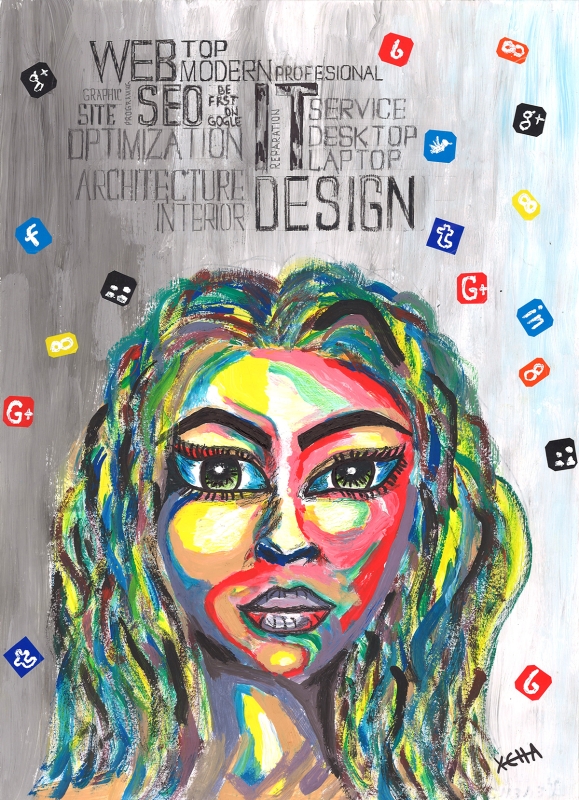
From good communication skills to web designer.
My super skills are communication and design. I want to use my two talents to create websites in order to attract clients interested in products and services through multimedia content and then make it easier for them to access the needed information. This profession requires continuous learning, patience, curiosity and self-discipline and I am ready for it.
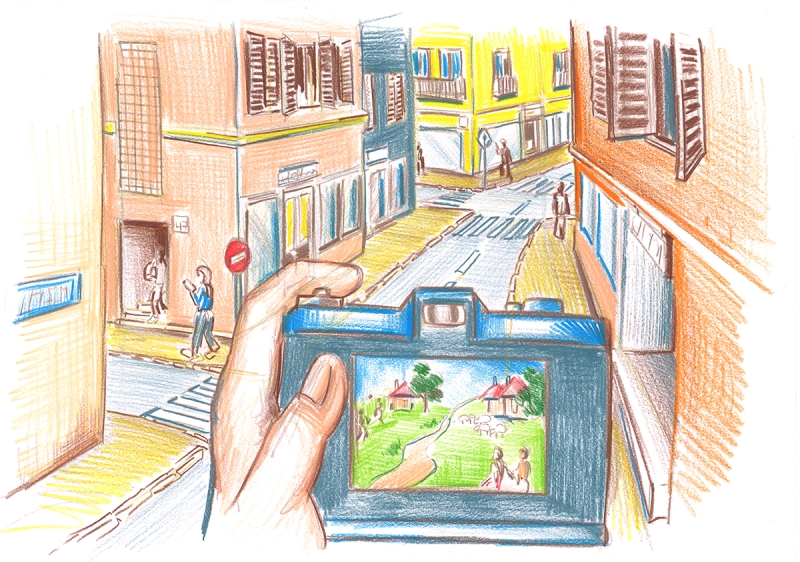
From sharp eye to travel photographer.
My super skill is seeing the world from different perspectives through a camera lens. My desire is to convey the local culture and daily life of local people through images all over the world.

From musical talent to singer-songwriter.
My super skill is creativity, especially in music. Singing fosters my creativity, and the results achieved in the form of songs fill me with positivity and give people around me a more positive attitude towards life and the world.

From multitalent to audio-visual artist.
My super skills are music and drawing. I want to express these two talents through various existing art forms, short and feature films, interactive art installations, but also to create and shape new formats in the process that unite these two talents of mine.

From a chess player to a strategist.
My super skill is playing chess. Chess is much more than a game, it teaches you strategy, risk assessment, patience, learning, winning and losing. I consider chess my school of life, which prepared me for a profession in business.
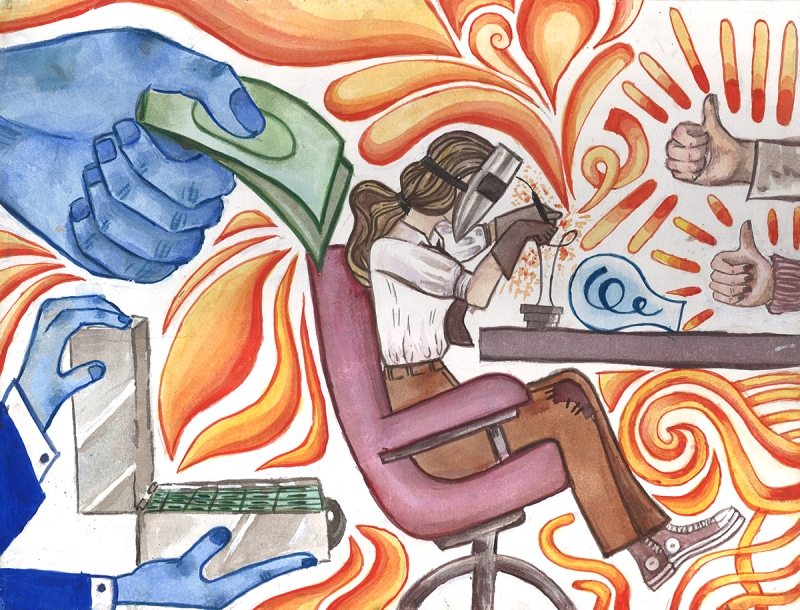
From curiosity to researcher.
My super skill is curiosity. More and more money is being invested in the research and realisation of humanistic ideas that contribute to the development and reform of civilization. I want to become part of that world and contribute to the progress of civilization through research and creativity.

From attention to detail to data analyst.
My super skill is the ability to think, analyse and gain "insights". I want to turn this talent into a profession of an analyst who would bring people closer to complex topics from different areas of life.
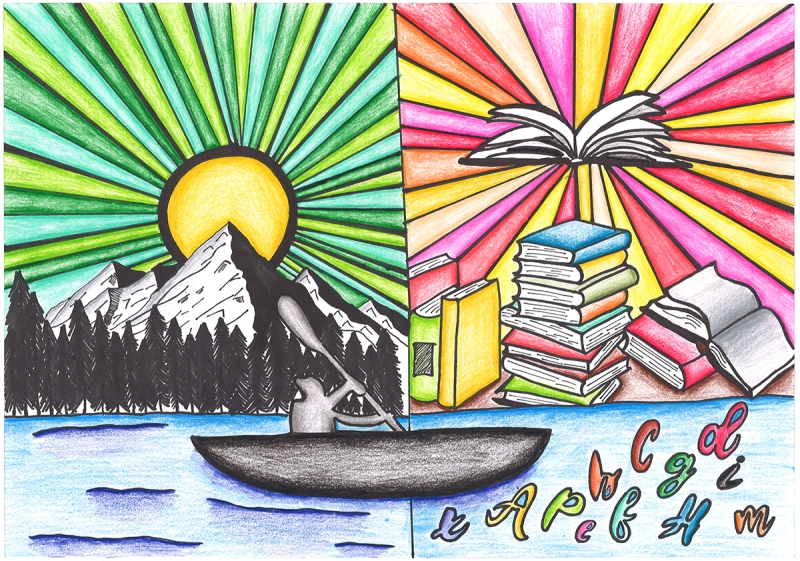
From a vivid imagination to a written book.
My super skill is creating new worlds in my head. My wish is to transfer my imagination and experiences into books and tailor the characters and events on my own.

From a play on words to a poetess.
My super skill is poetry writing. I want to write down the lines word by word, the lines in a song and put my songs in thousands of books because that fills my soul with happiness.

From talented student to travelogue writer.
My super skill is writing and travelling is my great passion. My wish is to convey all the beauty of my country and the world through my travelogues and encourage people to preserve the natural resources.
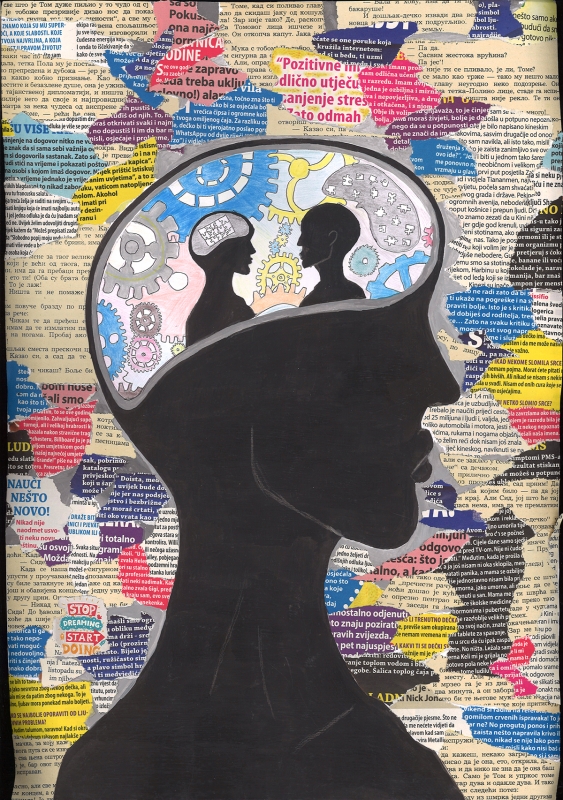
From logic to mediation.
My superskill is the ability to reason logically. By active listening, I can easily understand the essence of the problem, while by studying psychology I have gained knowledge about different personality types and peaceful conflict resolution. Through my future profession I want to help people to peacefully reach a compromise solution.
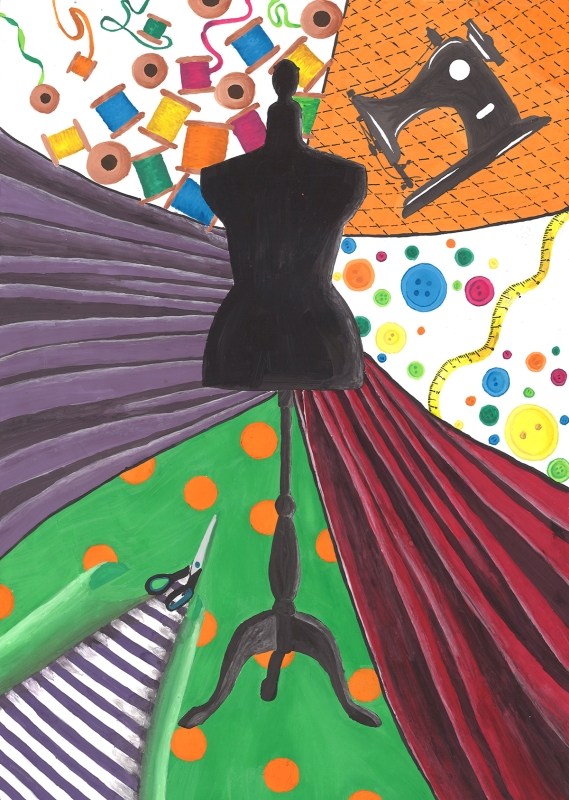
From fashionista to fashion designer.
My super skill is designing and making fashion items. Although there are not many opportunities in my community to upgrade this talent, I rely on my creativity and the Internet to continuously learn and develop my design skills.

From stargazing to astrologer.
My super skill is interpreting the stars. Although work and effort are the key means to reach your goals, it is always comforting to attribute a part of the success to fate. I hope to use astrology and support people in their quest to find their lucky star.

From young activist to environmental advocate.
My super skills are persistence, public speaking and organization. I want to contribute to change of how our country mistreats its natural resources, and in particular about air pollution. I hope that through my work I will increase the awareness of citizens and competent authorities about this problem of ours.

From sister to teacher.
My super skills are art and taking care of kids. Growing up in a large family, I have always loved small children and the joy they bring. My desire is to help the healthy development of children through learning, especially drawing and painting.

From engaged painter to eco-artist.
My super skill is art. In addition to creating, I am also passionate about preserving the environment and living in harmony with nature. My desire is to create art by recycling waste in order to turn pollution into beauty and in the process help clean up my environment.

From young hope to world class athlete.
My super skill is running. By winning the 800-metre race, as part of the European Youth Olympics (2022), as the youngest competitor, I placed among the 11 best athletes in the country and became part of the national team. With my work I have found myself among the best, and my dream is to win the Senior Olympics.

From friendly beautification to hairdresser.
My super skill is making hairstyles. In addition to creativity and companionship that it entails, beautification makes people happy, and my desire is that through my work I contribute to a more beautiful everyday life of my clients.

From family cuisine to top chef.
My super skill is cooking. The power to bring families together and cheer up with food is most often attributed to mothers and grandmothers, while I want to make all the guests of my restaurant happy with their traditional recipes full of effort and love.

From an old trade to a new occupation.
My super skill is knitting. My desire is to combine this old craft and modern design and to create new unique, artistic, handmade works.